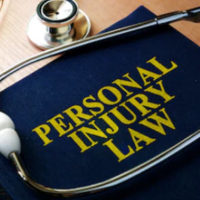TN Hospital Accused of “Coercing” Expert Witness in Medical Malpractice Case

In some personal injury cases, notably those involving product liability or medical malpractice, expert testimony is often necessary to establish the defendant’s negligence. Indeed, in any health care liability case, Tennessee law requires the testimony of at least one qualified expert who can explain how the defendant deviated from the accepted “standard of care” in their particular specialty. Without such testimony, a plaintiff’s case will fail.
Court of Appeals: Trial Judge Abused Discretion by Not Giving Plaintiff a Chance to Prove Defense Misconduct
A recent decision by the Tennessee Court of Appeals, Stubblefield v. Morristown-Hamblen Hospital Association, highlights the critical role expert testimony plays. The plaintiff in this case was a post-surgical patient at a hospital in Hamblen County. The plaintiff was required to remain in the hospital overnight following a cardiac catheterization.
The surgeon instructed the overnight nurse to administer nitroglycerin to the plaintiff during the night. The plaintiff objected, stating the drug was causing “an unbearable headache and nausea.” What happened next is a critical part of the plaintiff’s lawsuit. The plaintiff maintains the nurse ignored her objections and continued to give her nitroglycerin. The nurse denies this and said the plaintiff “consented” to further injections “once she was advised of the medical necessity.”
It was later discovered the plaintiff developed a “hematoma and pseudoaneurysm in her groin at the catheterization site.” This eventually required another surgeon to operate a second time on the plaintiff.
The plaintiff’s subsequent malpractice lawsuit named a number of defendants, including the hospital, the surgeon, and the nurse who allegedly ignored the plaintiff’s demands to stop the nitroglycerin injections. In support of the claims against the nurse, the plaintiff identified an expert witness, also a nurse, who was “expected to testify, within a reasonable degree of professional certainty, that [the Hospital’s] nurses breached the applicable standard of care in their treatment” of the plaintiff.
But just before a critical hearing was scheduled, the plaintiff informed the court that the nurse was no longer available to testify. The plaintiff said the witness advised her that “she could no longer provide expert testimony because her supervisor” threatened to fire her. The witness apparently worked for another hospital owned by the same network as the defendant hospital. The plaintiff therefore asked for a continuance and requested an “evidentiary hearing” to explore the issue of witness “coercion” further.
The trial court denied both of these requests and, lacking any expert testimony, granted summary judgment to the nurse and the hospital on the malpractice claims. The Court of Appeals held this was an abuse of discretion on the part of the trial judge. At a minimum, the appeals court said the plaintiff was entitled to an opportunity to “adequately respond to the [defense] motion for summary judgment in light of her unexpected loss of an expert witness.”
Contact a Knoxville Personal Injury Lawyer Today
Personal injury cases often take unexpected turns. This is why it is critical to work with a lawyer who has experience in managing–and winning–such cases in spite of such obstacles. If you have been injured due to medical malpractice or any other type of negligence, contact the offices of Fox, Farley, Willis & Burnette, today, to speak with an experienced Knoxville personal injury attorney as soon as possible.
Source:
tncourts.gov/sites/default/files/stubblefield_v._morristown_e2017-00994.pdf
/how-store-surveillance-footage-can-defeat-your-personal-injury-claim/
